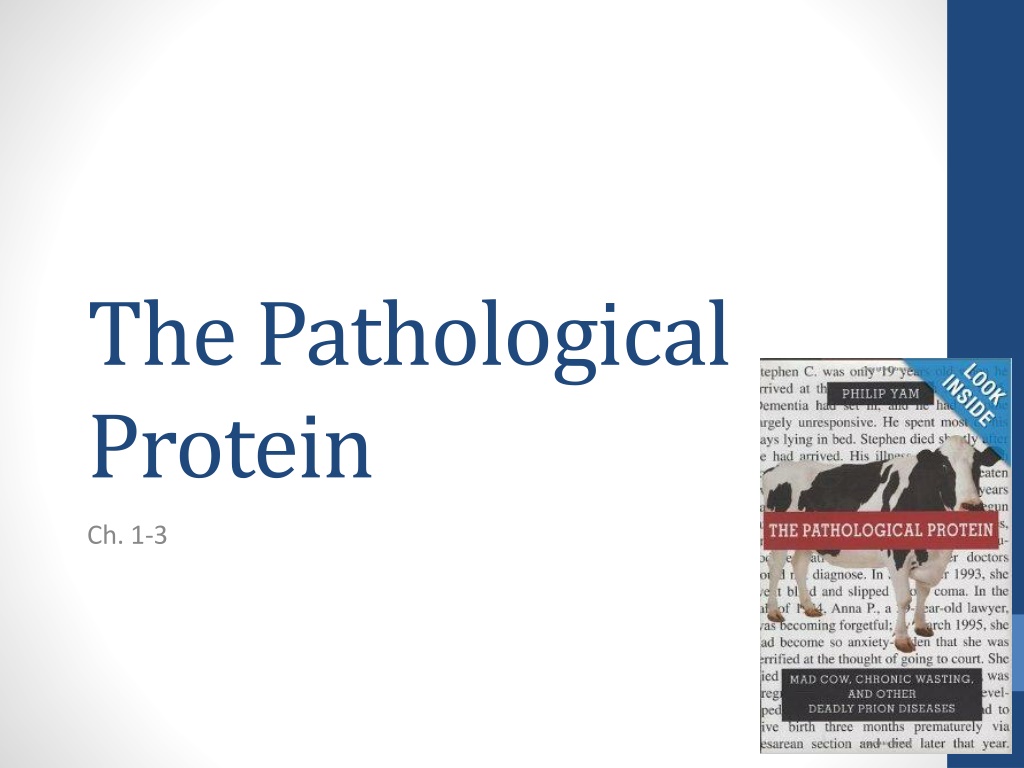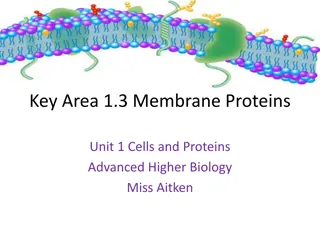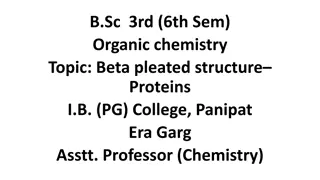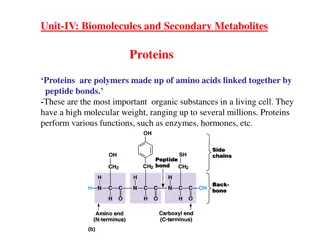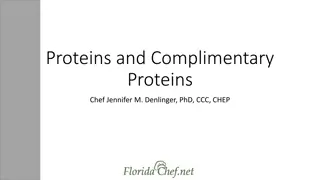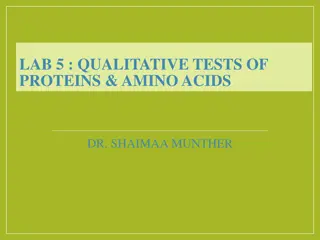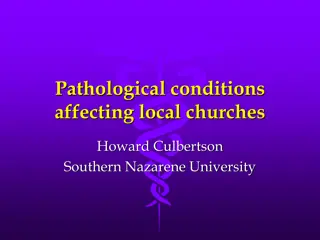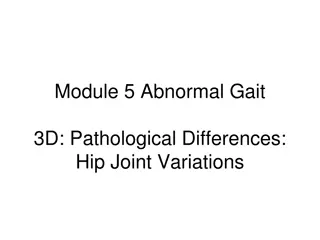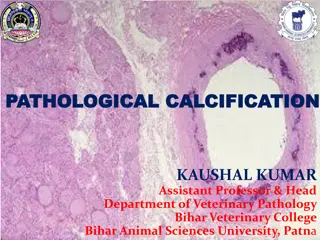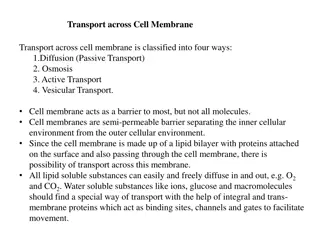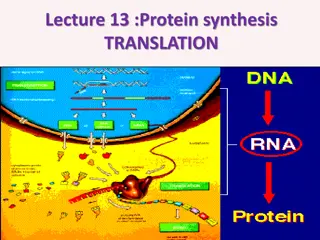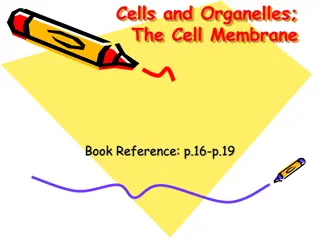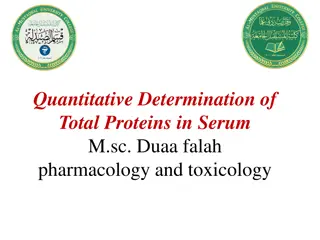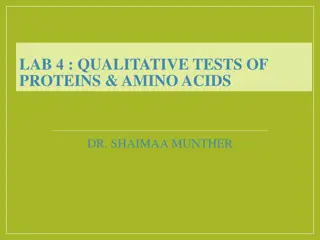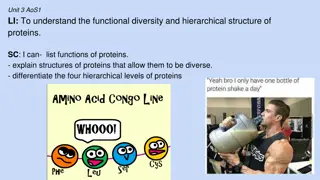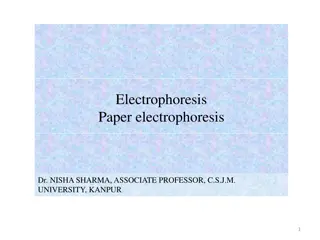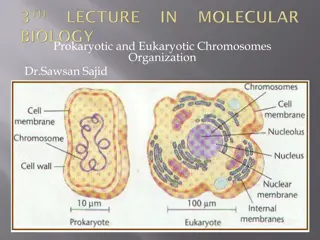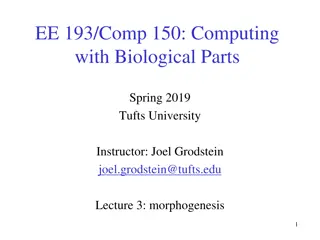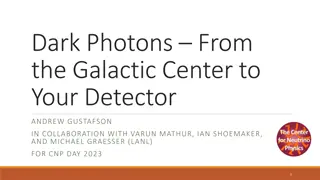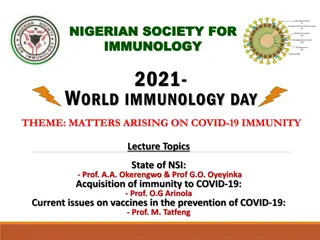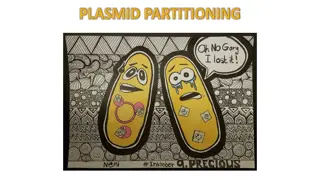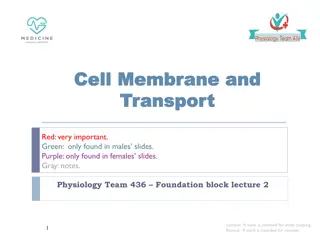Unveiling the Mysteries of Pathological Proteins
The Pathological Protein delves into the intriguing case of Stephen Churchill, a young man whose sudden decline and tragic death spark questions about his mysterious neurological condition. As the investigation unfolds, more puzzling cases emerge, shedding light on the enigmatic world of neurodegenerative diseases.
Download Presentation

Please find below an Image/Link to download the presentation.
The content on the website is provided AS IS for your information and personal use only. It may not be sold, licensed, or shared on other websites without obtaining consent from the author. Download presentation by click this link. If you encounter any issues during the download, it is possible that the publisher has removed the file from their server.
E N D
Presentation Transcript
The Pathological Protein Ch. 1-3
Ch. 1 A Death in Devizes Opens with the death of a U.K man named Stephen Churchill The shocker of the first page, is that Stephen Churchill is only 19years old He died 2 weeks after coming to the nursing home
A Boundless Future Background on Stephen Churchill Smart, engaging, talented Participation in Royal Air Force At the age of 17, he was tested on his Psychological, physical, coordination, leadership The only reason he could not become a pilot was because his legs were too long for the cockpit Why is the author giving us this background on Stephen? Is it working?
Troubling Sings All reasons they thought he began to downward spiral Depression caused by his grandfather, failing school, and totaling the car He was let go from his school Began to hallucinate and forget information, like what he ate Given antidepressants that were to no avail What would you do in this position? If it was your loved one?
You dont die of depression Health was progressively getting worse His parents decided to place him in a psychiatric hospital Complete attitude change, he became submissive Realized it was not psychiatric but neurological Sent him to Royal United Hospital in Bath to be properly tested He didn t have a fever, clear blood tests, and no signs of infection
No answers The family decided to bring him for a second opinion Final decision was to conduct a brain biopsy Neurologist didn t have answers As he was becoming increasingly harder to take care of, Stephen was put into a nursing home His parents thought he had years to live, while he died 3 weeks after arriving Autopsy results showed that he had CJD
Ch. 2 One in a Million Dr. Hans Gerhard Creutzfeldt Store of Bertha Elschker, an orphan Her physical and mental changes By the time of her death she was in a coma Alfons Maria Jakob- noticed her case file characterize the clinical picture of the disease The term Cruetzfeld-Jacob disease
The Unlucky Few CJD wasn t as rare as they thought One in a million = thousands of cases world wide Symptoms to death To own a cat or not? What was the purpose of this statement? 10-15% of CJD patients contract by inheritance What causes the one in a million cjd?
Diagnosing CJD Still no diagnosis after all of this time Not all patients display the same symptoms 14-3-3 Protein Location of where it is found Regulates signaling between cells Only way to diagnose CJD is to look under microscope About half of CJD cases are autopsied Bertha may not have had CJD at all
Stephens Case: CJD He was diagnosed with CJD His symptoms were unusual with CJD patients It lasted longer than other patients Amyloid plaques on his cerebellum Signs of Alzheimer's His plaques were surrounded by holes making them look like flowers Normally scientist rely on enzymes to break down the proteins Why do you think that Stephens case was so unique?
Ch. 3 The Cannibal s Laughing Death Cannibalism is not unique to New Guinea Background on the Fore tribe Catherine and Ronald Berndt, along with Shirley Lindenbaum and Robert Glasse were anthropologists who documented the Fore tribe They did not eat all dead relatives, especially if they had leprosy or dysentery They thought that the body had regenerative power The difference between the life of a man and woman in the Fore tribe Do you believe that the reasons for cannibalism are acurate?
Epidemic in the bush Variety of reasons people were interested in the Fore John MacArthur- a patrol officer in North Fore MacArthur told Zigas about kuru Apekono Zigas guide through the Fore region 1900 Fore people died of kuru Mostly women and children Johns Hopkins Resident Paul Brown Everyone new it was cannibalism What do we think about the last section on Paul Brown?
A Real-Life M*A*S*H* Doctor Treating kuru with drugs Gajdusek is introduced as a character Sir Frank Macfarlane Burnet Joseph Smadel Director of Walter Reed Paul Brown Worked for Gadjusek All different opinions of Gadjusek Which do you believe?
A Lifelong Pursuit Begins Interested in studying child growth and development and disease patterns in primitive cultures Initially tested measles vaccines in the Caroline Islands Learned about kuru from Roy F.R. Scragg Public health official Grant from Australian public health department to get adequate equipment
Harrowing feats to reach different villages Six day journey, climbing 7000 ft Leeches, mosquitoes, elephant grass Even though he was tired, he still managed to interview and get samples Compared kuru to Parkinson's The key to unlocking the mystery of kuru lay in the brain, and that meant opening up the skull to obtain samples for postmortem analyses. since they were engaged in cannibalism themselves- they had absolutely nothing against cutting up a body What do we think about this last quote?
Brain Clues Gajdusek sent 16 brains to Smadel at NIH Igor Klatzo Neuropathologist He realized the resemblance of these brains to those of patients with Cretuzfldt- Jacob disease. Turns out the two had very different circumstances William J. Hadlow The brains of sheep
